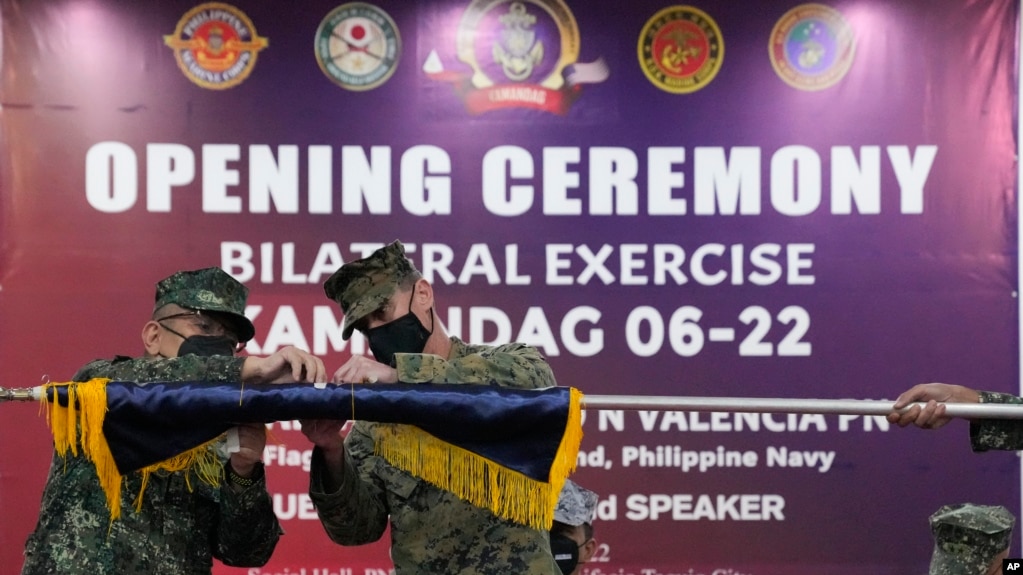
BREAKING WORLD WAR III NEWS: SOME EXPERTS FEAR PHILIPPINES MAY BE DRAWN INTO CHINA-TAIWAN CONFLICT DUE TO PROXIMITY WHICH COULD CAUSE THE U.S. TO HAVE TO RELUCTANTLY COME IN THROUGH THE BACK DOOR WHICH WOULD ESCALATE INTO WORLD WAR III AND BECOME A TOTAL DISASTER FOR PEOPLE AROUND THE WORLD
Daniel Whyte III, President of Gospel Light Society International, tells the Philippines the same thing he is telling America and that is, if you are not a part of the Chinese family, which Taiwan is, stay out of it. If the president of Taiwan, Tsai Ing-Wen, is wise, she would work it out with a country that is one hundred times bigger than her country. This is not the “GREATEST GENERATION” of World War II, and nobody wants to die for another country in a family squabble; most people today do not even want to die for their own country. So the cavalry from the U.S. is not coming and the cavalry from the Philippines should not come. People of all parties should consult with Dr. Henry Kissinger before things explode into World War III unnecessarily. Quite frankly, this would be a very stupid war that would cost the lives of thousands and maybe millions.
The Philippines would face difficult choices during a Taiwan-China conflict that could pit its growing interest in Chinese investment against its long-term relationship with its treaty ally, the United States, according to analysts.
Manila might also find itself drawn into a conflict, whether it chooses to or not, due to the country’s proximity to Taiwan, they say.
The Philippines’ most populous and northern, island, Luzon, is separated from the main island of Taiwan by the 250-kilometer-wide Luzon Strait, while some Filipino and Taiwanese outlying islands are even closer. It also lies on the strategically important and disputed South China Sea, much of which is patrolled by China’s maritime militia and navy.
By virtue of its geography, U.S. allies may vie for access to the Philippines’ remote islands as listening stations, said Gregory Poling, director of the Southeast Asia Program and Asia Maritime Transparency Initiative at the Washington-based Center for Strategic and International Studies.
“China has radically changed the status of forces in the South China Sea, which means the U.S. and Japan don’t control the southern end of the Taiwan Strait anymore. At best, we can monitor and try to interdict in the northern half, which makes the Philippines all the more important,” Poling told VOA. “It’s the only piece of territory close enough from which you could hypothetically both monitor and maybe even strike Chinese assets in the southern half of the Strait.”
Similarly, the U.S. might seek to rotate military personnel and ships through the Philippines as part of its 1998 Visiting Forces Agreement and 2014 Enhanced Cooperation Agreement with Manila.
Philippine Ambassador to the U.S. Jose Manuel Romualdez recently said in an interview that Manila might allow the presence of U.S. troops in the Philippines during a conflict “if it is important for us, for our own security,” although he also called for more dialogue between China and the United States.
U.S. forces could also use a shipyard at one of its former naval bases on the west coast of Luzon, purchased by the American private equity firm Cerberus Capital in May.
Under former Philippine President Rodrigo Duterte, Manila moved deliberately away from the United States, Taiwan’s main backer, toward China, and threatened to cancel the Visiting Forces Agreement, which eases access to the country for U.S. military personnel.
In the past two years, however, “the dial was already shifting back towards greater US-Philippines military cooperation” as Duterte’s six-year term came to an end, Susannah Patton director of the Southeast Asia Program at the Lowy Institute in Australia, said by email. It has continued to do so under new President Ferdinand Marcos Jr. — son of the late dictator Ferdinand Marcos — with plans to extend the Balikatan, Salaknib, and Kamandag joint military exercises between the United States and the Philippines.
Source: VOANews, Erin Hale
To read more, click here: https://www.voanews.com/a/analysts-fear-philippines-may-be-drawn-into-taiwan-china-conflict/6809229.html